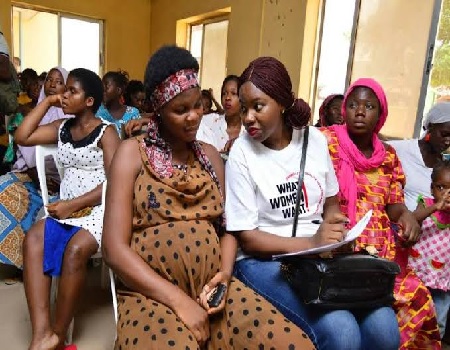Non-Governmental Organizations (NGOs) with a bias for adolescent healthcare have appealed to governments to create an adequate budget line for adolescent youth-friendly health services in the country.
Speaking at a one-day media dialogue session on promoting integration of adolescent and youth-friendly health services in primary healthcare centres (PHCs) in Nigeria held in Ilorin on Monday, the executive director of the Women Environment and Youth Development Initiative (WOYODEV), Mrs Tosin Apiriola, lamented that many state governments in the country have poor annual budget provision for adolescent health.
The workshop was a collaboration between the WOYODEV and the Novel Association for Youth Advocacy in Nigeria (NAYA), in partnership with the Nigeria Union of Journalists (NUJ), Kwara State.
Apiriola said that findings had revealed substance abuse (Codeine, tramadol, weed etc), teenage pregnancy, female genital mutilation, unsafe abortion, under-nutrition, mental health developmental challenges such as inadequate educational opportunities and rising level of underemployment and unemployment among youth in the state.
ALSO READ: Report before us within 48 hours, Reps order NIMASA boss
She, therefore, called on Federal Government and Kwara State government to invest appropriately in the health and development of their young people, saying that they are the future.
“These health services must have the standards and qualities that young people seek. However, available services are grossly inadequate.
“Information gathered from the state primary health care development agency (SPHCDA) in October 2019 at the advocacy strategy workshop for the integration of adolescent and youth-friendly health services (AYFHS) in Kwara State revealed that adolescent and youth-specific healthcare services are not available at the PHCs across the state, while the existing AYFHS in five secondary facilities are not well equipped to function maximally,” she said.
The WOYODEV coordinator, who said that such health care services for the youth must be equitable, accessible, acceptable, appropriate and effective, added that such is the indicators of the World Health Organization (WHO).
“This group of young people is the critical workforce for the growth and development of the state and as such, there is need to cater for their needs in terms of adequate and appropriate healthcare services, recreational and sporting facilities, etc,” she said.
WATCH TOP VIDEOS FROM NIGERIAN TRIBUNE TV
- Let’s Talk About SELF-AWARENESS
- Is Your Confidence Mistaken for Pride? Let’s talk about it
- Is Etiquette About Perfection…Or Just Not Being Rude?
- Top Psychologist Reveal 3 Signs You’re Struggling With Imposter Syndrome
- Do You Pick Up Work-Related Calls at Midnight or Never? Let’s Talk About Boundaries







